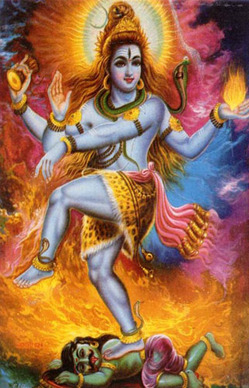In a case of life imitating art imitating art, it appears that the blockbuster (and, as I’ve discussed, sort of Hindu-ish) film Avatar has a very real-world application. Reportedly, a British charity called Survival (which campaigns on behalf of tribal peoples) took out a full-page ad in the Hollywood entertainment Bible Variety appealing to the film’s director, James Cameron, on behalf of the Dongria Kondh tribe of Orissa. London-based Vedanta Resources is about to build a mine on Niyamgiri mountain, which the Dongria consider a sacred site.
What’s the connection to Avatar and Cameron? Apparently, quite a bit. The U.K.’s Guardian reports:
Like the Na’vi tribe in Cameron’s blockbuster Avatar,who are desperately trying to stop humans from mining under theirsacred ‘home tree’ in Pandora, the Dongria Kondh are trying to stop[mining company] Vedanta from opening its mine on the mountain they worship.
Vedantaplans to construct an open-cast mine on Niyamgiri mountain in Orissastate which activists believe will destroy the area’s ecosystem andthreaten the future of the 8,000-strong Dongria Kondh tribe, who dependon the hills for their crops and water and who believe the mountain andsurrounding forest to be a sacred place.
The advertisement is concise, but not short on emotion. “Avatar is fantasy… and real,” it says. “TheDongria Kondh tribe in India are struggling to defend their landagainst a mining company hell-bent on destroying their sacred mountain.Please help…” Mr. Cameron is directed to watch a 11-minute documentary on the issue, with the cheeky “We’ve watched your film, now watch ours.”
So this is a case of a native Hindu tribe being exploited by a heartless, godless, Western corporation, right? Not quite.
For starters, whether or not the Dongria Kondh are Hindu is open to a great deal of debate. Some would say that their faith — rooted in recognizing the Divine in nature and traditional deities — is more representative of authentic Hinduism than many contemporary Hindus are. For instance, they use “Hindu” terminology — such as puja (worship) — when describing their practices. Others however, would hotly contest this, arguing that tribal peoples have their own faith that ought to be recognized as such.
This isn’t, by the way, a matter of mere semantics. It is chock full of politics and conflicting agendas. Consider tribals to be non-Hindus and they become the minority (usually in the face of an oppressive and exploitative Hindu majority). Call them Hindu, however, and suddenly they become sympathetic mascots for a traditional form of Hinduism threatened by extinction (usually at the hands of exploitative proselytizing Christian missionaries).
Sharp-eyed readers (or at least those more familiar with Sanskrit) may have noticed another curve-ball in the Avatar-esque story of the Dongria Kondh tribe. The company that is “hell-bent” on the mining, you may remember, is called Vedanta Resources. Yup, a company named after — and purportedly rooted in — Hindu philosophy. Vedanta’s website touts its corporate ethos:
Sustainable development is a key part of Vedanta’s strategy and overallethos. It represents a core commitment of our management and employees.
While one might dismiss this as typical corporate hot-air-blowing, perhaps in Vedanta’s case it is more. The company’s Executive Chairman, industrialist Anil Agarwal, is known to be a committed Hindu spiritualist himself. (Full disclosure: I’ve been a guest at satsangs, Hindu religious gatherings, hosted by Agarwal at his home in Mumbai.)
With the Variety ad generating all sorts of publicity of its own, a number of questions arise. Will Cameron take up the challenge? Will Vedanta change course? Will the legions of Trekkie-like Avatar fans turn their love of the film into a call to arms in the real world?
Whatever else, we can note one significant way that reality differs from Cameron’s film: in real life, its not always so easy to tell the good guys from the villains.
Here’s Survival International’s film on the Dongria Kondh’s mountain and the conflict:

